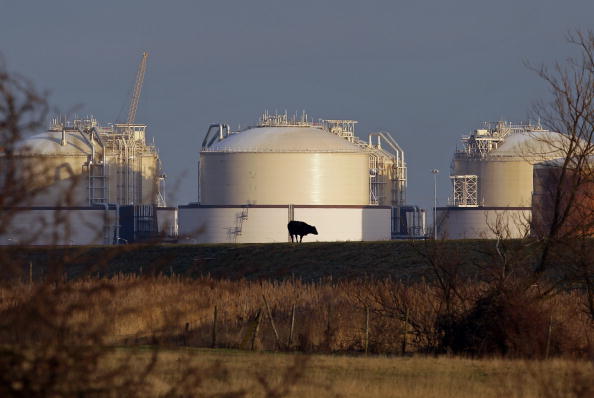In a post last week we discussed the way the Ukrainian crisis is focusing a number of U.S. leaders on the potential foreign policy impacts of surging U.S. energy production. With its vast natural gas reserves, the U.S. could be a leader in the global market for liquefied natural gas (LNG), if we took the steps to make that happen – starting with government approval of permits to build LNG export terminals.
Unfortunately, that process is slow. Although the Energy Department has approved six applications since 2011, more than 20 still are pending. And the U.S. isn’t the only country eyeing the global LNG market. More than 60 non-U.S. LNG export projects are planned or under construction. In a number of ways, it’s a race to the rewards stemming from natural gas abundance. API’s Erik Milito, director of upstream and industry operations, addressed these and other issues during a conference call with reporters:
“For the first time in generations, the United States is an energy superpower. And the world – especially Europe and countries like Russia, China, and India – is watching closely to see if American policymakers are ready to harness that power on the international stage. We may not have control over what happens in other parts of the world, but we can control our decisions about how to utilize U.S. energy, and those decisions will have a major impact on the world around us.”
Milito added:
“Now is the time to build our energy infrastructure, expand exports, and lock in the economic and geopolitical opportunities that our energy revolution has created. To do that, we need continued support from policymakers in Washington to build LNG export terminals. … The only thing standing between America and a steady flow of jobs and capital are self-imposed bureaucratic restrictions. And the sooner we act, the sooner those benefits will flow – another reason why what we do today matters.”
The U.S. Energy Information Administration (EIA) estimates the U.S. will become a net LNG exporter by 2016, Milito said. A study by ICF and an Energy Department-commission analysis by NERA found that U.S. LNG exports would generate job creation and economic benefits while stimulating more domestic natural gas production – with minimal impact on domestic prices. Milito said NERA updated its study with the latest EIA data and concluded that LNG exports would add jobs and reduce near-term unemployment. But the window of opportunity could close. Milito:
“We have this international competition and could potentially lose out. Time is of the essence on LNG approvals because these $10-, $15-, $20-billion investments could go to another place in the world where there are 60 other projects moving forward. … Our point here is let’s let the market figure it out. The more the government has a process where these decisions are delayed, the more the government is actually helping to drive investment outside the United States because we’re creating a disadvantage for the companies that aren’t getting through the process.”
Some downplay connecting the United States’ LNG export potential and the current energy-related standoff between Russia and the Ukraine. U.S. exports won’t come online fast enough to affect the present crisis – an argument often made when the subject is energy infrastructure needs. Milito:
“We now have an opportunity as a nation to be more of a player as an energy superpower, in terms of putting these supplies out and allowing countries to diversify well into the future. My concern is that when we talk about energy policy and energy security, the debate always comes back to the short term. Well, nothing’s going to happen today or tomorrow. What about five years from now, what about 10 years from now? The security we have today is because of decisions that were made five, 10 years ago.”
The United States has the natural gas wealth to meet domestic needs and supply friendly buyers overseas. LNG exports will create jobs here at home, spur more natural gas production and signal to the rest of the world that America intends to be a leader, not a follower, in the global marketplace. Milito:
“By accelerating exports, we can strengthen the global energy market against future disruptions and send a signal to the world that the United States is ready to lead. Our growth as a major exporter would bring competition into the market and help ease the ties that bind our allies to any single supplier.”
By Mark Green
Originally posted March 12th, 2014
Energy Tomorrow is brought to you by the American Petroleum Institute (API), which is the only national trade association that represents all aspects of America’s oil and natural gas industry. Our more than 500 corporate members, from the largest major oil company to the smallest of independents, come from all segments of the industry. They are producers, refiners, suppliers, pipeline operators and marine transporters, as well as service and supply companies that support all segments of the industry

